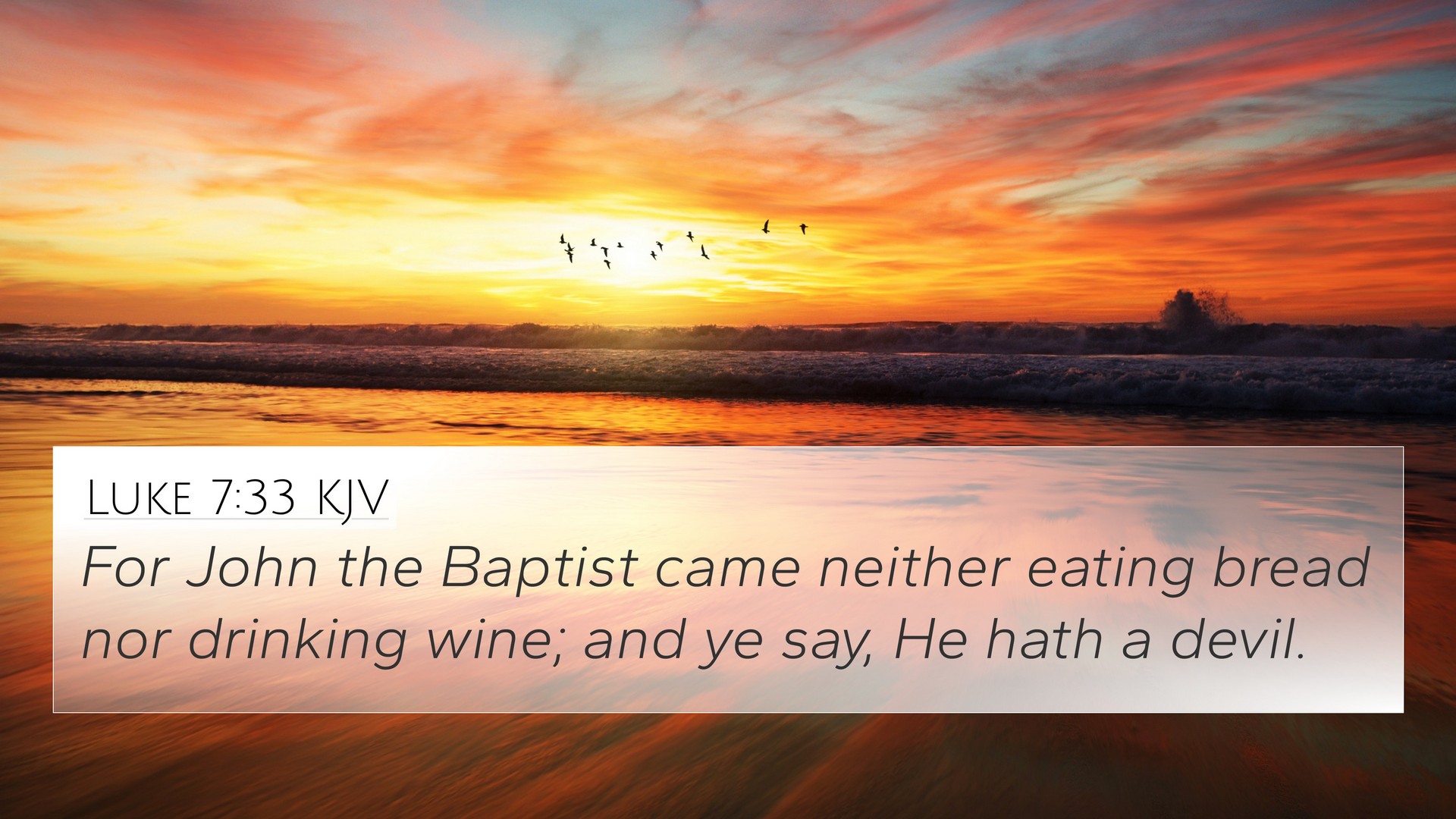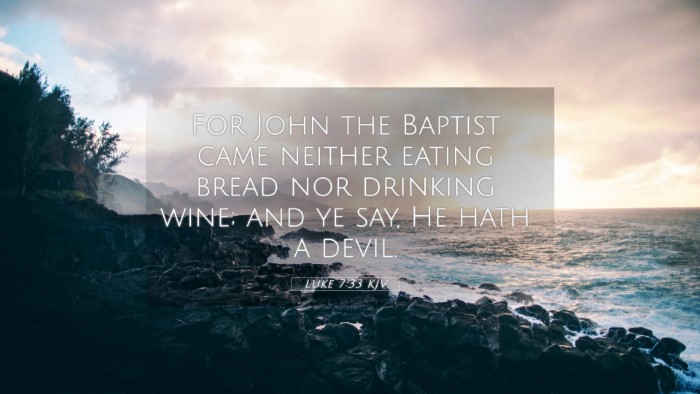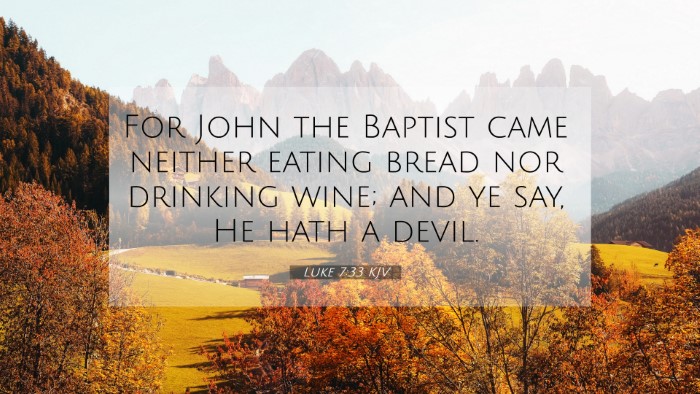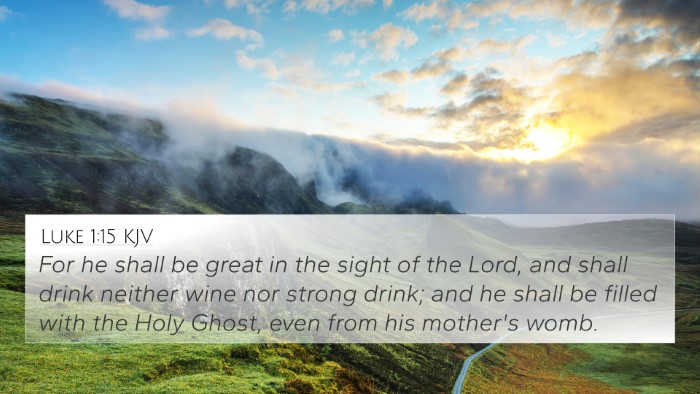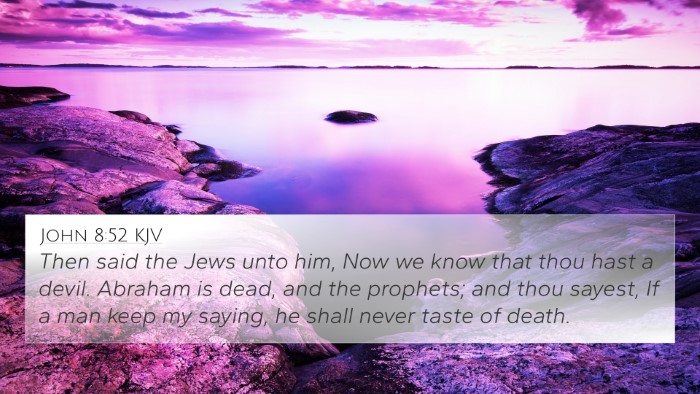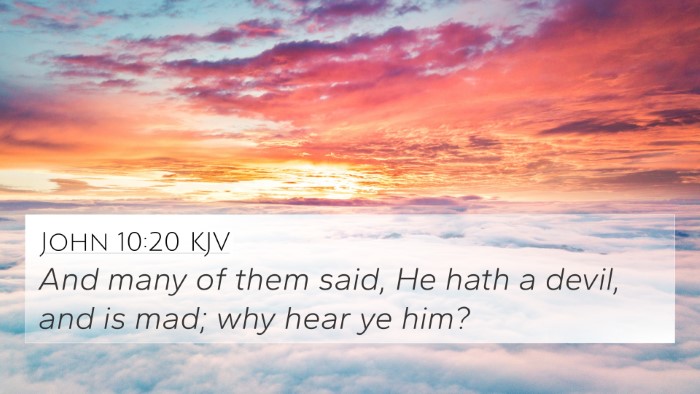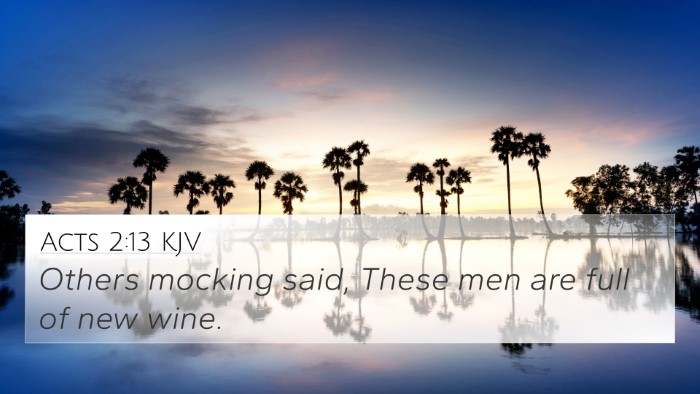Understanding Luke 7:33
Luke 7:33 states: "For John the Baptist came neither eating bread nor drinking wine; and ye say, He hath a devil." This verse highlights the disapproval and skepticism faced by John the Baptist, indicating the societal challenges of accepting prophetic messages.
Commentary Insights
Matthew Henry’s Commentary
Matthew Henry emphasizes that John the Baptist's ascetic lifestyle was a stark contrast to those who indulged in earthly pleasures. He suggests that criticism often arises from people's preconceptions about holiness and godliness. Henry points out that John’s method of ministry, through fasting and strict living, led some to label him as possessed, showing how judgment often falls on those who do not conform to societal norms.
Albert Barnes' Notes
Albert Barnes further explains that the reference to bread and wine symbolizes the normal joys of life which John abstained from. He notes that people did not discern the spiritual significance of John’s calling and viewed his lifestyle as extreme. Barnes highlights that this verse serves to illustrate the broader theme of rejection faced by true prophets throughout scripture, as their messages often challenge established norms.
Adam Clarke’s Commentary
Adam Clarke elaborates on the cultural context, explaining that wine and bread were often used in Jewish celebrations. John's refusal of these elements was a symbol of his severe commitment to his prophetic calling. Clarke emphasizes the irony that those who should celebrate the coming of the Messiah instead criticize His forerunner, illustrating the disconnect between divine intentions and human perceptions.
Thematic Connections
This verse is significantly relevant in studying the interactions between the Old and New Testaments, reflecting on how prophetic figures are often met with skepticism. Understanding Luke 7:33 allows readers to analyze the resistance some prominent Biblical figures, including Jesus and John, faced during their ministries.
Cross-References
To facilitate a deeper understanding of Luke 7:33, the following Bible cross-references connect with this verse:
- Matthew 11:18-19 - Discusses the reactions to both John and Jesus.
- Luke 1:15 - Speaks of John's ascetic lifestyle and mission.
- Acts 13:25 - Mentions John’s role as a forerunner to Jesus.
- John 1:23 - John identifies himself as a voice crying in the wilderness.
- Matthew 3:4 - Describes John’s appearance and lifestyle.
- Luke 3:19-20 - Relates John’s confrontation with Herod.
- Isaiah 40:3 - Prophecy about the voice preparing the way of the Lord.
- Zechariah 13:4 - Indicative of prophets' lifestyles in Israel.
- Mark 1:6 - Continues to describe John’s unique lifestyle and mission.
- Proverbs 1:22 - Explores the theme of scorn and rejection of wisdom.
Connecting Themes and Cross-Referencing
This verse not only highlights John the Baptist’s rejection but also facilitates a broader comparative Bible verse analysis among those who called out in the wilderness throughout Biblical history.
Tools for Bible Cross-Referencing
Understanding the significance of Luke 7:33 can be aided by tools for Bible cross-referencing such as:
- Bible concordance
- Bible cross-reference guide
- Cross-reference Bible study
- Bible reference resources
- Bible chain references
- Cross-referencing Bible study methods
Conclusion
Luke 7:33 serves as a profound reminder of the cultural and spiritual challenges faced by God's messengers. Through scriptural cross-referencing and thematic connections, readers gain a clearer perspective on the dynamics between divine calling and public perception.
